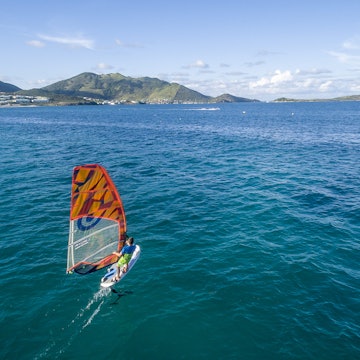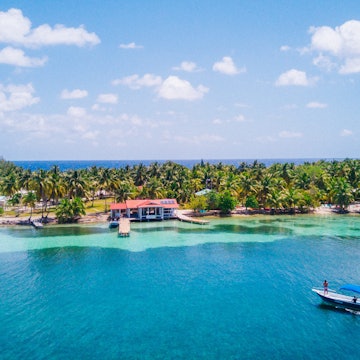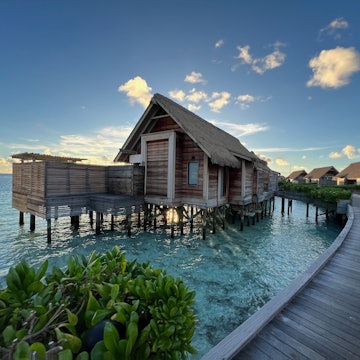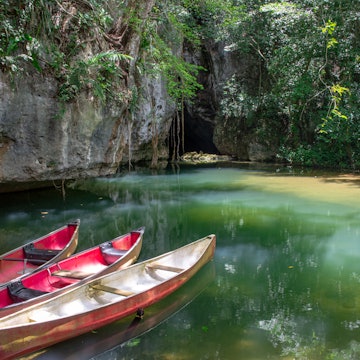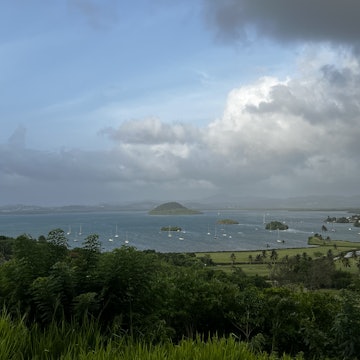
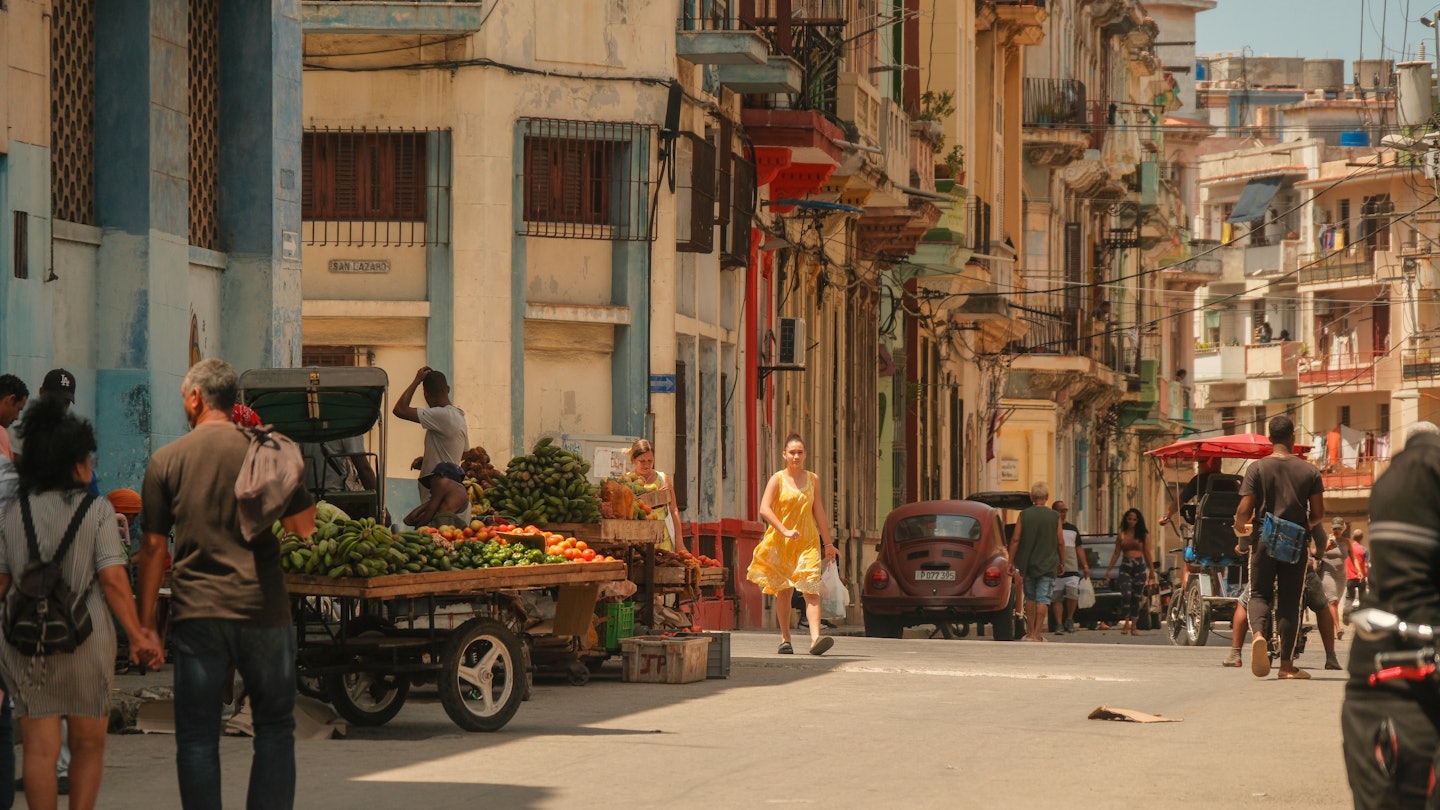
Start in the vibrant center of old Havana and make your way through all of Cuba's top places to visit. kandl stock / Shutterstock
Cuba delights travelers with enchanting pastel-flecked cities – where the beat of tropical rhythms is never far from earshot – that give way to lush forests and waterways rich with wildlife. Bask on a white sand beach, survey the sky for migrating birds, dance your way across town or stroll through plazas that whisper of a fascinating history.
Here are 10 places worth adding to your itinerary for the Caribbean’s biggest island.

1. Havana
Best city for art and architecture
The Cuban capital of Havana is packed with vintage cars, embellished with cobblestone plazas and framed by the 8km (5 mile) sea drive known as the Malecón.
Make sure you visit Habana Vieja’s old squares for a glimpse of the architecture that defines the image of the city. Palatial mansions dating to the 1700s and 1800s now operate as museums and hotels. A walk along the pedestrianized Calle Obispo takes you past art galleries, shops, music venues and more incredible buildings.
Planning tip: Art is everywhere in Havana, with plenty of galleries and artsy outdoor areas such as the San Isidro district and Fusterlandia. For an in-depth session on Cuba’s artistic history, spend a day at the Museo Nacional de Bellas Artes – Arte Cubano.
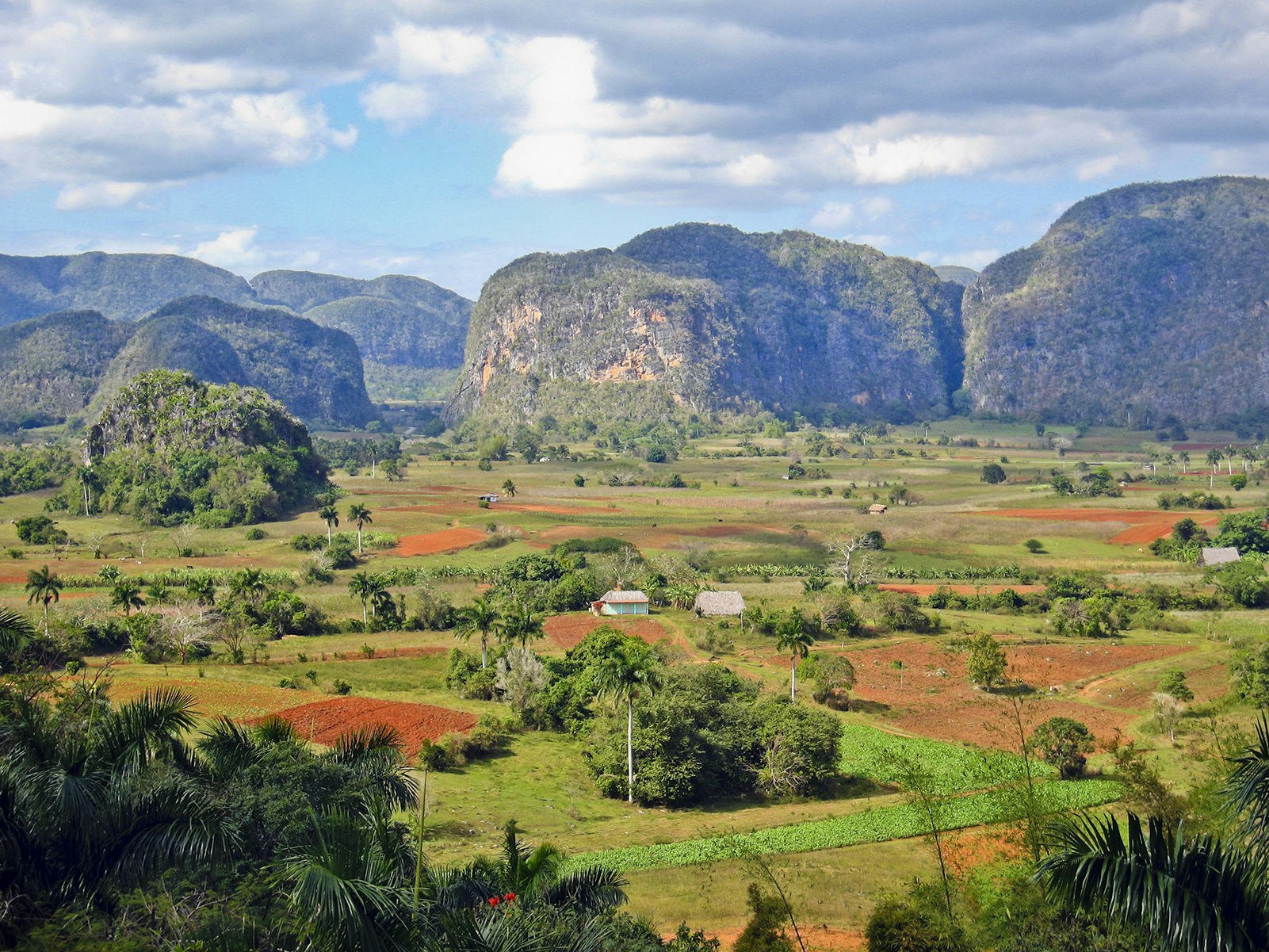
2. Valle de Viñales
Best for tobacco plantations
About 180km (111 miles) west of Havana, Viñales is one of the most beautiful places in Cuba. It was added to UNESCO's World Heritage List because of its dramatic landscape of red soil and distinctive limestone outcrops called mogotes.
Viñales has the best casas particulares (private homestays) in Cuba, and helpful casa owners are go-to coordinators for local activities. Choose from cycling, horseback riding or hiking in Los Acuáticos or Valle del Palmarito, or drive to Gran Caverna Santo Tomás, Cuba’s largest cave system.
Planning tip: Touted for growing the world’s best tobacco, Viñales isn’t fully experienced unless you book an expert-guided tour inside a triangle-roofed drying house at a tobacco plantation.

3. Varadero
Best for a beach resort
Even if every tourist in Cuba decided to meet in Varadero, there’s still room for more, with 20km (12 miles) of powdery white sand.
You can stay in all types of accommodations, from all-inclusive resorts at the top end to beautiful casas particulares. Families enjoy Varadero’s safe, shallow shores, while revelers dance the night away at Casa de la Música or themed party nights at hotels.
Planning tip: When you tire of the beach (if that is possible), while away an afternoon sipping rum-infused cocktails at Mansión Xanadú’s rooftop bar while gazing out at the impossibly crystalline water.

4. Santiago de Cuba
Best for understanding Cuba’s revolutionary history
Considered the second capital of Cuba, Santiago de Cuba was the HQ of the revolutionary forces in the 1950s, but there’s more to experience here. Caribbean rhythms, tropical flavors and frenzied festivals set the scene of this colorful city.
Start with a visit to Cuartel Moncada, one of Cuba’s best museums, with a curated collection of revolutionary paraphernalia and a detailed explanation of events starting in 1959. Continue your journey deeper into the past at the Basílica de Nuestra Señora del Cobre, Cuba’s most venerated church. It has an exhibition of offerings to the patron saint, including those given by the bearded revolutionaries themselves in the 1950s.
Planning tip: Santiago bursts with a constant partylike atmosphere, reaching its pinnacle at the nationally famous Carnaval right after the Día de la Rebeldía Nacional (National Rebellion Day) on July 26.

5. Baracoa
Best for road-tripping
Just getting to Baracoa in the easternmost tip of Cuba is an experience in and of itself. The road from Guantánamo leads to La Farola, a sinuous 60km (37 mile) route considered one of the most scenic drives in Cuba.
Expect a three-hour trip through lush mountains, interrupted only by vendors of cucuruchos de Baracoa, a cone-shaped mix of coconut flakes, honey, guava paste and a fruity flavor (such as pineapple and orange rind), all wrapped up in a palm frond.
Planning tip: Río Duaba and El Yunque are great spots for hiking among abundant flora and birdlife, but if you’re looking for deeper immersion into semivirgin forests, book a tour at Parque Nacional Alejandro de Humboldt.
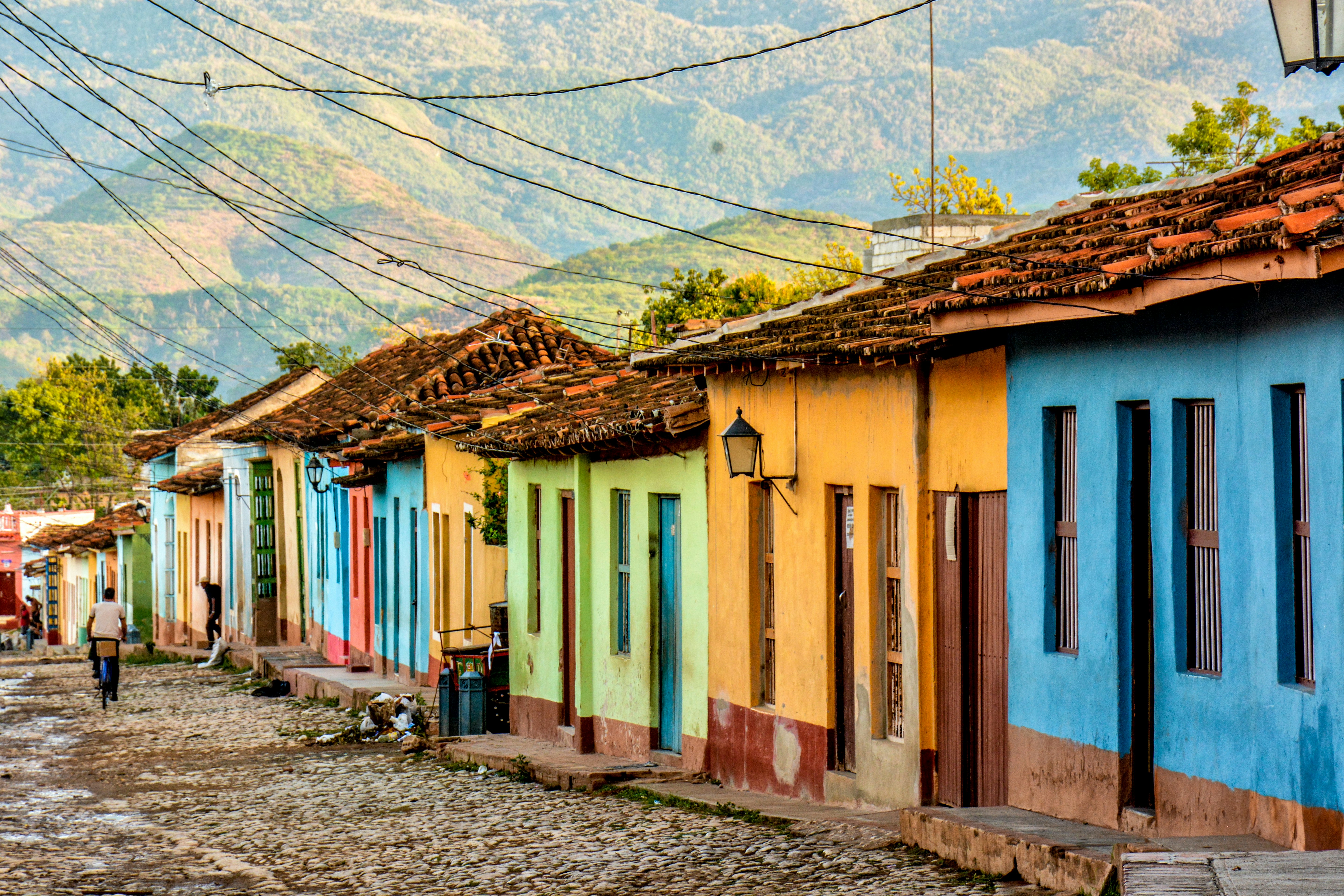
6. Trinidad
Best for handmade arts and crafts
Declared a UNESCO World Heritage Site in 1988 and a World Craft City in 2018, Trinidad, full of cobblestoned streets and Spanish-style mansions, is the cradle of the best handmade crafts on the island.
Trinidad's needleworkers stitch their linen pieces at open-air markets, exhibiting handmade clothing, delicate embroidered tablecloths and garments such as guayaberas (men's shirts).
Planning tip: You’re likely to see local markets on pedestrianized parts of the town’s historic center, adjacent to the Plaza Mayor, but artisans also display at a daily fair at the base of Torre Manaca Iznaga, 16km (10 miles) outside of Trinidad.

7. Matanzas
Best for live music and dancing
Touted as the Athens of Cuba, Matanzas is the homeland of some of the country’s most cherished performers, such as Miguel Faílde, creator of the cheek-to-cheek danzón (ballroom dance).
The city is also the birthplace of rumba, an Afro-Cuban dance that the 70-year-old music group Los Muñequitos de Matanzas has promoted worldwide. Look out for live music performances held weekly at the Museo Palacio de Junco.
Local tip: Matanzas tempts travelers looking for a more Cuban Cuba with alluring architecture and neoclassical buildings, such as the fully restored Teatro Sauto, as well as living antiques like the Museo Farmacéutico, founded as the first of its type in Latin America in 1882.
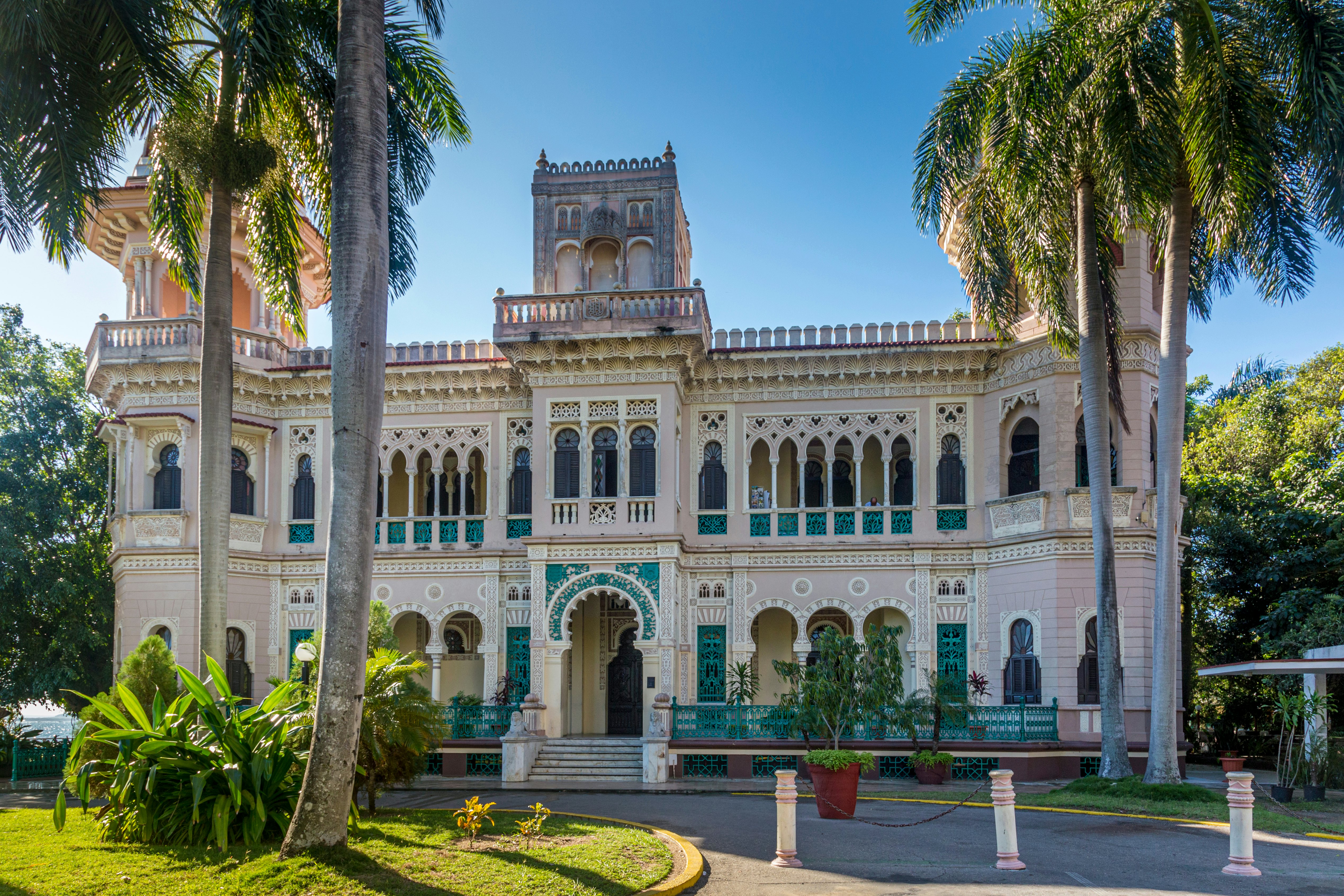
8. Cienfuegos
Best for water activities
Cienfuegos is Cuba’s Pearl of the South, a French-inspired city founded in 1819 on a beautiful natural bay. Deep enough to welcome cruise ships and megayachts, the bay is best enjoyed from Punta Gorda and the nautical centers at Club Cienfuegos and Marlin Marina Cienfuegos.
Planning tip: Enjoy a day kayaking, fishing or windsurfing, and definitely include an excursion to Laguna Guanaroca, a protected natural area, to see the flamingoes and take a boat trip on the lake.
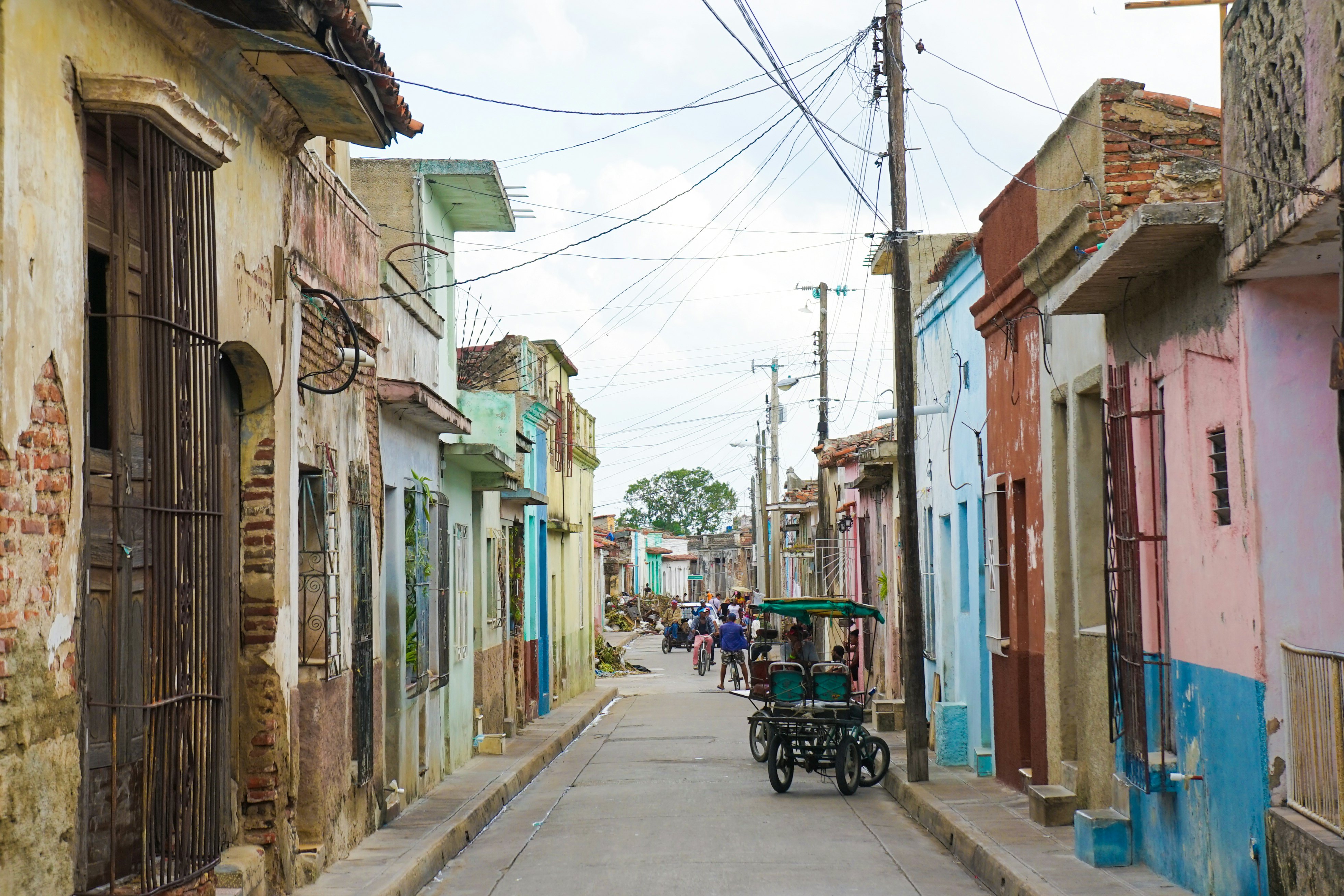
9. Camagüey
Best city for strolling
Elegant and artistic, Camagüey oozes charm and youthful energy, but it’s the surprisingly intricate street pattern of the city center that usually strikes visitors.
Most of the grid is formed by narrow one-way streets. It’s almost impossible to figure out if you’re behind the wheel, so instead stroll around the mazelike alleys to discover small but lovely plazas all within walking distance of one another.
Spend a day wandering between the artisan market at Plaza San Juan de Dios and the less-visited Plaza del Carmen, home of the inspiring art gallery of Martha Jiménez Pérez.
Planning tip: Check out Cuba’s narrowest and shortest streets while you're in Camagüey. Callejón del Cura is only 1.4m (4.6ft) wide, while Callejón de la Miseria is 15m (49ft) wide, with only two houses facing each other.
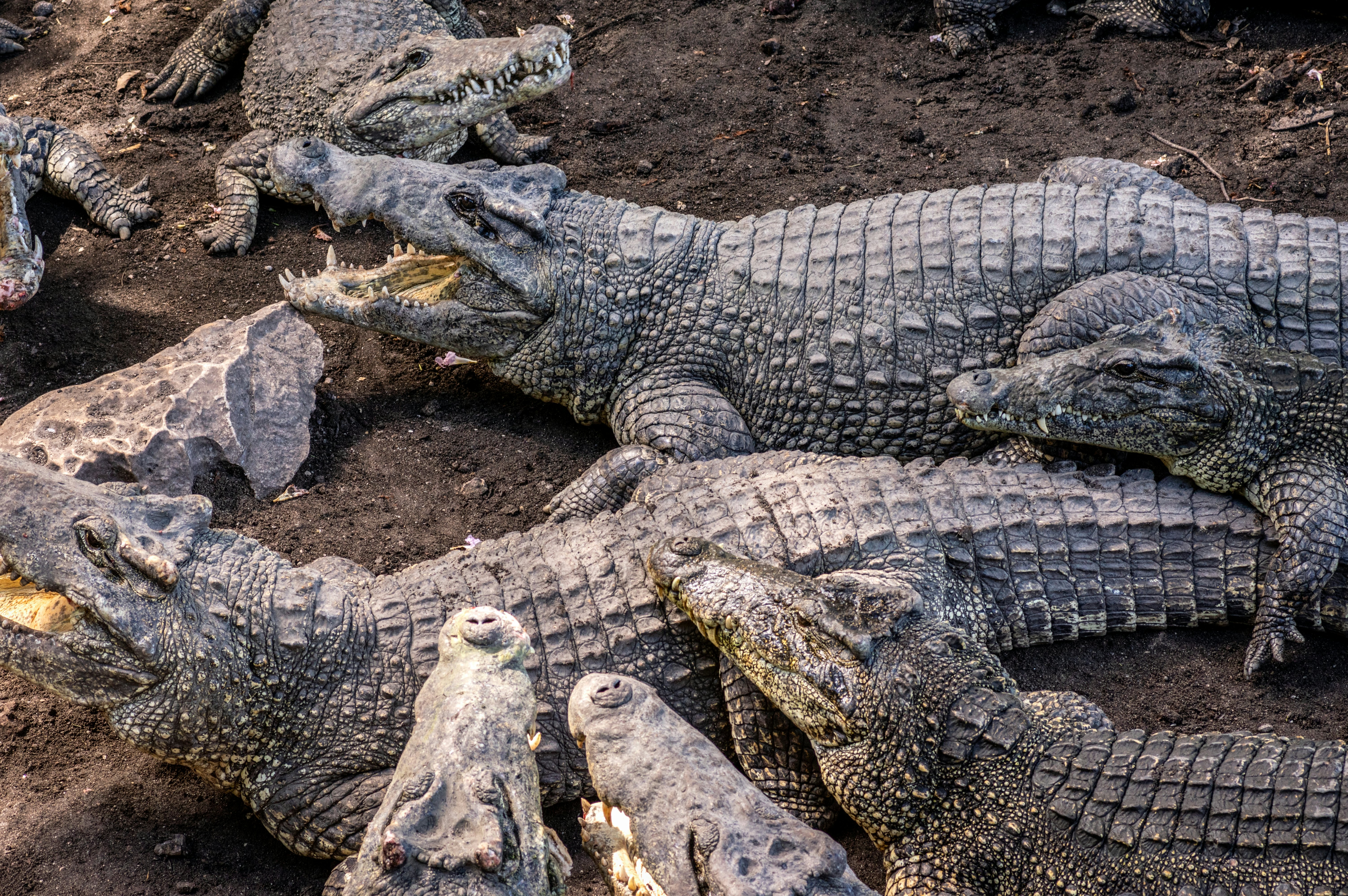
10. Playa Girón
Best for swimming, diving and birdwatching
Playa Girón has one of the country’s best diving sites that isn’t far offshore – no boat required! The clear Caribbean waters south of Matanzas province have impressive visibility and a colorful variety of marine fauna. Go for a refreshing swim in a gorgeous cove at Caleta Buena, or look for coral reefs at Punta Perdiz.
Playa Girón is also one of the best places in Cuba for birdwatching because it is part of the Parque Nacional Ciénaga de Zapata, which sees about two-thirds of the more than 350 bird species that call Cuba home.
Planning tip: On the way from Playa Larga to Playa Girón, stop off at Cueva de Los Peces, one of Cuba’s few cenotes (sinkholes).






